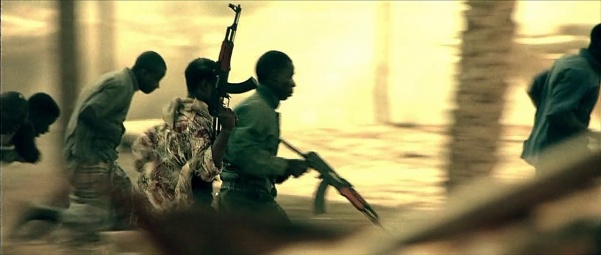Or the Middle East, or Southeast Asia, or Detroit etc. except those who live there.
Daniel Greenfield at his blog Sultan Knish wades into a thorny minefield to question western aid to Africa (and elsewhere) and how it might make a few do-gooders feel good about themselves, but in fact is just a bottomless money-pit where your money ends up feeding ‘government’ corruption and providing fat salaries for NGO employees in a never-ending cycle.

Remember in 2008 when Irish writer Kevin Myers penned a column on the topic, and you-know-what hit the fan and his job was threatened at the Irish Independent for daring to say this:
The wide-eyed boy-child we saved, 20 years or so ago, is now a priapic, Kalashnikov-bearing hearty, siring children whenever the whim takes him.
And, once you’ve read it, a never-to-be-forgotten dark novel about the African aid racket is Paul Theroux’s ‘The Lower River’, based on the author’s own experience with aid agencies in Africa.
Greenfield continues the theme today at Sultan Knish (hat tip: Ed). Emphasis is mine:
Every lofty aid goal begins with a big number and bleeds down to the prosaic reality that the goal will never be met, but that everyone involved will be told to feel good about themselves for trying. The bigger the goal, the bigger the administrative overhead, the corruption and the inefficiency. Instead of scaling up results by scaling up funds, more money and more people lead to fewer individual results.
The aid economy of the underprivileged is the smaller half of the overall aid economy. The biggest piece of the aid economy is in the hands of the aid organizations that profit from an unsolvable problem that, all their fundraising brochures to the contrary, they have no interest in solving because it would remove their reason for existing. Africa’s misery is their wealth. The worse Africa becomes, the more incentive the easily empathetic and the guilty of the West will have to pour money into their latest cause to buy everyone in Africa a goat, a laptop or a sandwich.
It’s the old Soviet problem. The producers have no interest in producing anything. The aid recipients, distributors and providers have achieved a dysfunctional equilibrium. The system is broken, but everyone has learned their roles within the broken system. If the system changes, they will all have to get jobs. It was that inertia which kept the USSR going long after its leaders stopped caring about the ravings of Marx, Lenin and Stalin. It took the energy of a younger generation that had yet to become invested in the system to topple it and it is the older generation that is most likely to march with portraits of Communist leaders and kiss them for the cameras.
You can buy a homeless man a sandwich, but you can’t buy them all sandwiches because once you do that, you are no longer engaging in a personal interaction, but building an organization and the organization perpetuates itself. You don’t need a homeless man to exist so that you can buy him a sandwich, but once an agency exists that is tasked with buying homeless men sandwiches, it needs the homeless men to exist as ‘clients’ so that it can buy them sandwiches and buy itself steak dinners. [Sound familiar! This is what perpetuates the entire refugee contractor industry!—ed]
In aid economies, the scale of the problem grows slightly faster than the amount of aid and activists hold out the tempting promise that by increasing spending to stay ahead of the problem, it can be solved completely. All it would take is for everyone to become engaged and care. That isn’t a plan, it’s a pat on the back for the people who do care and an incentive to show their moral superiority by continuing to throw good money after bad into the aid economy.
There is much more! Read it all!
You won’t save Africa either by removing Africans from Africa and placing them in small town (or large city) America!
